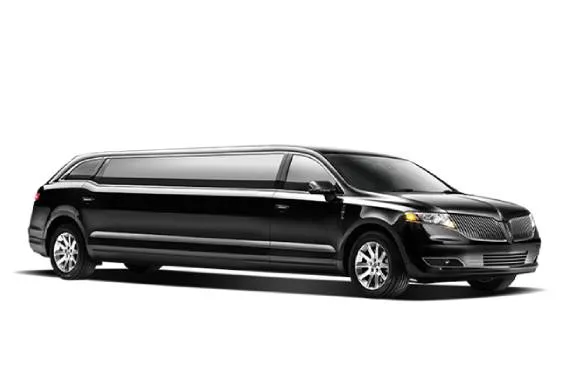Remember those days when minivans ruled the carpool lane? They were the undisputed kings of family transportation, offering cavernous interiors and endless cupholders. But times have changed. SUVs rose in popularity, offering a rugged image and higher driving position. Yet, the need for practicality hasn’t vanished. Enter the “smallest minivan,” a hidden gem for those seeking a balance between functionality and maneuverability.
This isn’t your dad’s minivan. The “smallest minivan” caters to a specific audience:
Families on the Go: You juggle groceries, soccer practice, and school plays. You need a vehicle that seamlessly transitions between errands and adventures, comfortably seating the whole crew.
Smart Downsizers: You’re embracing a more minimalist lifestyle, but still value space for occasional road trips or visiting grandkids. You don’t want to be downsized out of practicality.
The smallest minivan offers the best of both worlds: ample passenger and cargo space in a more manageable size.
The Mini-Minivan Revolution
The traditional minivan market might have shrunk, but a niche segment is thriving: the mini-minivan. These compact heroes prioritize practicality without sacrificing maneuverability, making them perfect for navigating city streets and tight parking spots.
Top Contenders: Shrinking the Competition
Several strong contenders have vied for the “smallest minivan” crown over the years. Let’s explore some notable options:
Mazda 5 (2006-2017): This quirky minivan stood out with its fun-to-drive nature and unique rear sliding doors. It offered comfortable seating for five and decent cargo space, making it a favorite among style-conscious families.
Kia Rondo (2007-2017): Affordability meets practicality with the Rondo. It boasted available seating for seven and a surprising amount of cargo space for its size. While not the most exciting to drive, it offered a comfortable ride and excellent value.
Ford Transit Connect (2013-Present): This versatile option blurs the lines between minivan and cargo van. While passenger space might be slightly cramped compared to others, the Transit Connect shines with its flexible cargo configurations, making it a great choice for families with active lifestyles who need to haul gear regularly.
Key Specifications Comparison:
| Feature | Mazda 5 | Kia Rondo | Ford Transit Connect |
|---|---|---|---|
| Length (in) | 180.3 | 182.3 | 178.4 |
| Seating Capacity | 5 | 5 (7 Optional) | 5 (7 Optional) |
| Cargo Space (cu ft) | Behind Seats: 42.3 | Behind Seats: 42.6 | Behind Seats: 126.0 |
Global Appeal: While the options above might be more common in North America, the concept of the mini-minivan extends worldwide. For instance, the Peugeot Bipper in Europe offers a similar compact yet functional design.
Choosing Your Perfect Mini-Minivan
Finding the right “smallest minivan” depends on your specific needs. Here are some key factors to consider:
Passenger Needs: How many people will you be regularly transporting? Do you prioritize individual comfort, or are you okay with a slightly tighter squeeze for more passengers?
Cargo Capacity: Do you need space for sports equipment, luggage, or bulky groceries? Consider your typical cargo needs and choose a minivan that offers enough space.
Fuel Efficiency: Gas prices can fluctuate, so fuel economy is an important factor. Research the fuel efficiency ratings of different models to find one that fits your budget.
Features and Technology: Do you crave the latest in-car technology or prioritize basic features? Consider which features are important to you and your family.
Budget: Set a realistic budget for your car purchase and stick to it. Remember, there are excellent options available across various price points.
Pro Tip: Looking for a used mini-minivan? Resources like Kelley Blue Book and Edmunds can help you find reliable used car options in your area.
The Final Shift: Shrinking Footprint, Big Possibilities
The smallest minivan might not be the flashiest option on the road, but it offers a compelling value proposition. It provides the practicality of a minivan in a more manageable size, making it perfect for urban families and downsizers who prioritize both functionality and maneuverability. So, ditch the minivan stigma and explore the world of the smallest minivans. You might be surprised by the perfect blend of practicality and maneuverability it offers for your busy life.
**Ready to downsize without sacrificing space? Research “smallest minivans near me” or “most fuel-efficient mini minivan” to find your perfect.

Smallest Minivan: Shrinking Footprint, Big Innovation – The Rise of the Mini-Minivan
Remember the golden age of minivans? Those boxy behemoths dominated carpool lanes, synonymous with soccer practices and endless cup holders. But times have changed. The rise of the SUV offered a more rugged, adventurous image, and the minivan market experienced a significant decline. Yet, the need for practicality hasn’t vanished entirely. Enter the “mini-minivan,” a clever innovation catering to a specific audience who values functionality without sacrificing maneuverability.
The Minivan Metamorphosis: From King to Niche
The decline in traditional minivans can be attributed to several factors. The growing popularity of SUVs played a major role. SUVs offered a higher driving position, a more rugged aesthetic, and the perceived versatility of handling off-road adventures (even if most never left the pavement). Additionally, some minivan designs lacked a touch of style, leading to a perception of being uncool or outdated.
However, the need for spacious, family-friendly vehicles didn’t disappear. This gap in the market birthed the “mini-minivan” segment. These compact heroes prioritize practicality without sacrificing maneuverability, making them perfect for navigating city streets and tight parking spots. They offer a solution for those who yearn for the functionality of a minivan but are hesitant about the bulk or driving dynamics of a traditional model.
The Mini-Minivan Advantage: Shrinking the Footprint, Expanding Your Options
So, what exactly is a mini-minivan? It’s a minivan that prioritizes a smaller footprint while still offering ample space for passengers and cargo. Compared to their larger counterparts, mini-minivans typically boast:
Shorter Length: This translates to easier maneuvering in tight spaces and city streets. Parallel parking becomes a breeze, and navigating crowded parking lots is less stressful.
Improved Maneuverability: The smaller size allows for a tighter turning radius, making handling corners and navigating traffic a more car-like experience.
Fuel Efficiency: Due to their smaller size and lighter weight, mini-minivans often offer better fuel economy compared to larger minivans, saving you money at the pump.
While they might offer slightly less passenger or cargo space than traditional minivans, mini-minivans are ideal for:
Urban Families: For families who navigate city streets and tight parking spots regularly, a mini-minivan offers the perfect balance of space and maneuverability.
Downsizers: Empty nesters or those seeking a more minimalist lifestyle can benefit from the functionality of a mini-minivan without the extra bulk of a traditional one.
Active Lifestyles: With their flexible cargo options, mini-minivans can accommodate bikes, sports equipment, or luggage for weekend getaways.
The mini-minivan segment might be a niche, but it offers a compelling value proposition for those seeking a practical yet manageable solution for their transportation needs. In the next section, we’ll explore some of the top contenders for the “smallest minivan” crown and how to choose the right one for you.
Minivans: Shrinking Footprint, Big Innovation – The Rise of the Mini-Minivan (Part 2)
In our previous exploration, we delved into the decline of traditional minivans and the rise of the “mini-minivan” segment. These compact heroes prioritize practicality and maneuverability, making them perfect for urban families and downsizers seeking a functional yet manageable solution. Now, let’s meet some of the top contenders for the “Smallest Minivan” crown:
Champions of the Compact: Top Mini-Minivan Contenders
While the mini-minivan segment might be smaller than its full-size counterpart, it boasts a range of compelling options. Here are some notable contenders, both past and present:
Mazda 5 (2006-2017): The Quirky Charmer
Standing out from the crowd, the Mazda 5 offered a unique driving experience for a minivan. This quirky charmer boasted fun-to-drive dynamics for those who value a little zoom with their practicality. But the real stars of the show were its rear sliding doors, making getting in and out of tight parking spots a breeze (and a major win for parents wrangling kids). The Mazda 5 offered comfortable seating for five and decent cargo space, making it a favorite among style-conscious families who didn’t want to sacrifice a bit of fun.
Kia Rondo (2007-2017): The Affordability Champion
Affordability meets practicality with the Kia Rondo. This budget-friendly option offered surprising value for those seeking a comfortable and spacious ride without breaking the bank. The Rondo boasted available seating for seven, making it a great choice for larger families. While cargo space might be slightly less than some competitors, it still offered enough room for groceries, luggage, or gear for weekend adventures. The Rondo might not have been the most exciting to drive, but it prioritized comfort, functionality, and affordability, making it a strong contender in the mini-minivan arena.
Ford Transit Connect (2013-Present): The Cargo Chameleon
The Ford Transit Connect blurs the lines between minivan and cargo van. While passenger space might be slightly cramped compared to others, the Transit Connect shines with its flexible cargo configurations. Its boxy design might not win any beauty contests, but for those with active lifestyles who need to haul gear regularly, the Transit Connect is a champion. The abundance of cargo options allows you to easily adjust the space based on your needs, making it a great choice for families who need to transport bikes, sports equipment, or furniture without sacrificing passenger comfort entirely.
Mini-Minivan Comparison: A Side-by-Side Look
Here’s a quick comparison table to help you visualize the key specifications of these top contenders:
| Feature | Mazda 5 | Kia Rondo | Ford Transit Connect |
|---|---|---|---|
| Length (in) | 180.3 | 182.3 | 178.4 |
| Seating Capacity | 5 | 5 (7 Optional) | 5 (7 Optional) |
| Cargo Space (cu ft) | Behind Seats: 42.3 | Behind Seats: 42.6 | Behind Seats: 126.0 |
| Unique Selling Point | Sliding Doors, Fun-to-Drive | Affordability, Available 7-Seating | Cargo Flexibility |
Global Appeal: Mini-Minivans Take the World Stage
While the options above might be more common in North America, the concept of the mini-minivan extends beyond borders. The global market offers interesting options catering to specific regional needs. For instance, the Peugeot Bipper in Europe offers a similar compact yet functional design, showcasing the international appeal of the mini-minivan segment.
This highlights the beauty of the mini-minivan market – it caters to a diverse range of needs and preferences. Whether you prioritize affordability, cargo space, unique features, or a touch of driving fun, there’s likely a mini-minivan champion waiting to be discovered.
In the next section, we’ll delve into choosing the perfect mini-minivan for your needs, exploring crucial factors to consider before making this important decision.

Minivans: Shrinking Footprint, Big Innovation – The Rise of the Mini-Minivan (Part 3)
We’ve explored the decline of traditional minivans and the rise of the “mini-minivan” segment, met some top contenders, and witnessed the global appeal of these compact heroes. Now, it’s time to find your perfect match. Choosing the right mini-minivan hinges on understanding your specific needs and priorities. Here are some key factors to consider:
Passenger Needs: How Many and How Comfy?
Number of Seats: Do you need a mini-minivan that comfortably seats five, or do you occasionally require extra seating for occasional passengers? Consider your typical needs and choose a model that offers the right seating configuration.
Comfort: Will you be hauling small children who require car seats? Do you prioritize individual legroom for longer trips? Research the seating layout and comfort features of different models to ensure a pleasant ride for everyone.
Cargo Capacity: How Much Stuff Do You Need to Haul?
Typical Cargo Needs: Do you need enough space for groceries, or do you regularly transport sports equipment, luggage, or bulky gear? Mini-minivans offer a range of cargo capacities. Understanding your typical needs will help you choose a model with sufficient space.
Cargo Flexibility: Some mini-minivans, like the Ford Transit Connect, boast flexible cargo configurations. This allows you to adjust the space based on your needs, maximizing passenger and cargo capacity depending on the situation.
Fuel Efficiency: Saving Money at the Pump
Gas prices can fluctuate, so fuel efficiency is an important consideration, especially with rising fuel costs. Mini-minivans typically offer better fuel economy compared to their larger counterparts due to their smaller size and lighter weight. Research the EPA ratings of different models to find one that fits your budget and driving habits.
Features and Technology: Finding the Sweet Spot
Tech Savvy or Basic Needs? Do you crave the latest in-car entertainment systems and driver-assistance features, or are you content with basic amenities? Consider which features are important to you and prioritize accordingly.
Safety First: Safety should always be a top priority. Research the safety ratings of different mini-minivan models and choose one that offers the essential safety features you need, like airbags, blind-spot monitoring, and rearview cameras.
Budget: Finding the Right Fit
Setting a Budget: Before you start shopping, determine a realistic budget for your car purchase and stick to it. This will help you narrow down your options and avoid overspending.
New vs. Used: Are you set on a brand-new mini-minivan, or are you open to considering a used one? Used models can offer significant savings, but remember to factor in potential maintenance costs.
Pro-Tip: Resources for Used Car Buyers
Looking for a used mini-minivan? Here are some reputable resources to help you find reliable options:
Kelley Blue Book: https://www.kbb.com/ offers detailed used car valuations and can help you find used mini-minivans in your area.
Edmunds: https://www.edmunds.com/ provides used car reviews, pricing information, and can connect you with local dealerships selling used minivans.
Carfax: https://www.carfax.com/ generates vehicle history reports, allowing you to check the maintenance history and identify any potential issues before buying a used mini-minivan.
By considering these factors and utilizing the resources available, you’ll be well on your way to finding the perfect mini-minivan to suit your needs and budget.
In the final section, we’ll wrap up our exploration of the “smallest minivan” with some frequently asked questions and additional resources to empower your minivan journey.
Thunderbolt Su
Minivans: Shrinking Footprint, Big Innovation – The Rise of the Mini-Minivan (Part 4)
Remember the days when minivans ruled the road? They’ve undergone a metamorphosis, with the “smallest minivan” emerging as a champion for urban families and downsizers seeking practicality without sacrificing maneuverability.
The Mini-Minivan Advantage: Recap
Mini-minivans offer a compelling solution for those who yearn for the functionality of a minivan but are hesitant about the bulk or driving dynamics of a traditional model. They provide:
Shorter footprint and improved maneuverability: Perfect for navigating city streets and tight parking spots.
Spaciousness for passengers and cargo: They offer ample space for families or those who need to haul gear regularly.
Fuel efficiency: Their smaller size typically translates to better gas mileage compared to larger minivans.
Finding Your Perfect Match: Ready, Set, Mini-Minivan!
Choosing the right “smallest minivan” hinges on understanding your needs. Consider factors like:
Passenger needs (number of seats, comfort)
Cargo capacity and flexibility
Fuel efficiency
Features and technology
Budget (new vs. used)
By utilizing resources like Kelley Blue Book, Edmunds, and Carfax, you can find reliable used options that fit your budget.
So, Ditch the Minivan Stigma and Embrace the Mini
The “smallest minivan” might not be the flashiest option on the road, but it offers a practical and innovative solution. It shrinks the minivan footprint while maximizing functionality and maneuverability. It’s perfect for navigating busy city life and provides ample space for families or those with active lifestyles.
Ready to downsize without sacrificing space?
Here’s your call to action:
Research “smallest minivan near me” or “most fuel-efficient mini minivan” to find models available in your area and that prioritize your driving needs.
Explore manufacturer websites and car review platforms to delve deeper into specific features and specifications.
Take advantage of test drives to experience the handling and comfort of different mini-minivan options.
Embrace the innovation of the “smallest minivan” and discover a vehicle that perfectly blends practicality and maneuverability for your busy life.


